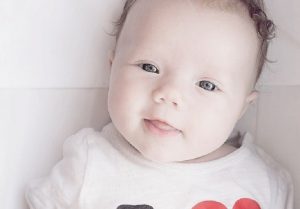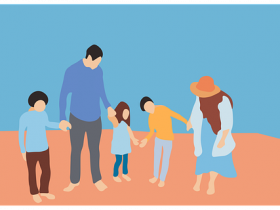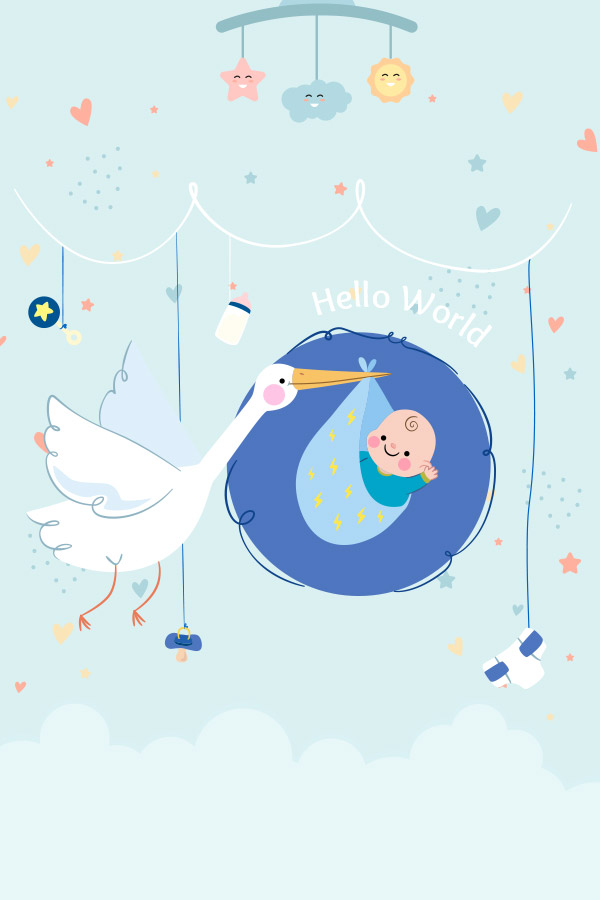There’s nothing more endearing than your little human’s gummy grin and gurgling laughter. It is the picture-perfect image that can brighten your day and wipe all your worries away.
If you are wondering ‘when do babies smile’ – at what age – it is around the second or third month.
A smile is one of many developmental milestones your baby will reach as he grows; it happens earlier in some and later in others.
However, there’s no need to be concerned if your munchkin hasn’t smiled as yet.

Developing Reflexes
You’ve probably seen or heard about newborns smiling when they’re born. A few lucky people may have seen a smile on an ultrasound while still in the womb.
The early smiles you see, when your baby is asleep, are actually reflexes. It is called a ‘reflexive smile’ and is not a real smile.
Reflexive smiles are considered responses to an internal stimulus. This includes peeing or passing gas, when asleep or comfy.
This reflexive smile is not a full-blown smile, but a mere twitching of the mouth. In-utero, the baby is all curled up in the fetal position. The reflexive smile is a part of your little one trying out his/her mouth much like when they kick their legs and throw their arms.
A Social Skill
A smile, as a sign of social development, is observed later. The ‘social smile’, as it is called, does not occur earlier than 6 weeks of birth.
You will notice the difference between a reflex and a social smile. A social smile is not mechanical and momentary. It’s a smile that hits the eyes. It does not occur randomly but is a reaction to some form of interaction.
A newborn’s eyesight is blurry. They cannot figure out details. They cannot see objects placed at a distance. The vision starts clearing out gradually. There is a sharpening of other senses too.
Your baby will flash his/her first real grin when they are able to recognize people. A special person, the mother, a playful aunt or a favourite caregiver, will always trigger that adorable smile. Thus, a smile is also an indication of improving vision.
A baby may smile in response to sounds in the immediate surroundings or if you start making funny faces at playtime or during diaper change.
The wide grin will soon be accompanied by gurgles and sounds mimicking a verbal conversation; your baby’s attempt at striking a conversation.
You will notice that this social grin tends to be consistent; you will see it whenever the cause is present.
How to get your baby to smile?
Be patient. Every baby has a different timeline. Don’t force your baby to smile. Just continue to do what you are already doing.
Spend time with your baby. Talk to them. It could be baby talk and babble, but will help you connect.
Look at them when talking. You can make funny faces and sounds. It always grabs their attention. You can also sing to your little one. Peekaboo is a favourite with babies.
Spending one-on-one time with your baby will accelerate their mental growth and boost their social skills.
Authored by Shalini









I’m pretty pleased to find this great site. I need to thank you for this particularly fantastic read!! I definitely loved every little bit of it and I have saved it as a favorite to see new stuff on your blog.
Thank you